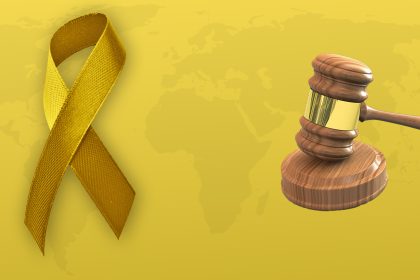‘New Year Blues’ is worsened by end of festivities, social media comparisons, return to social isolation, toxic workplaces and nasty bosses
‘Go boldly into the new year’ is what we would tell ourselves if we were to borrow from Dylan Thomas’ poem “Do not go gently into that good night”.
But what if we can’t? What if the supposed or actual failures of the past year actually hold us down? And instead of beginning the year with excitement, writing down goals to achieve in this new year and renewing our gym subscription to finally hit our optimum health targets, we find that we are more stressed, sad and anxious with the turn of the new year.
This phenomenon is known as ‘New Year’s Blues’ or ‘New Year Depression’. While it’s not exactly a medical term, its elements are recognized in psychology, with its symptoms overlapping with conditions such as anxiety and mood disorders. It is where the beginning of a new year causes some people to be stressed, anxious and/or depressed, contrary to the excitement and sense of beginning again that other people feel. The symptoms may include: poor appetite, insomnia or excessive sleepiness, low mood, irritability, anhedonia, low energy, difficulty concentrating and anxiousness.
Biological, mental, psychosocial and financial factors are among the significant contributors to the “New Year Depression.” When it comes to biological factors, people with pre-existing diagnoses of depression, anxiety, bipolar disorder or those with a history of mental illness tend to experience worse and prolonged symptoms as compared to the general population. This is because they have a heightened sensitivity to stressors compared to others.
Other biological factors that may lead to New Year’s Blues include; dietary changes; an over-indulgence in high-sugar diets over the holidays and alcohol consumption, circadian rhythm disruption with poor sleep patterns over the holidays, physical inactivity and the general increase in stress during holidays causing a spike in cortisol levels. These factors contribute to the lethargy, low mood and irritability that accompanies the transition back to regular schedules after the holidays.
On to the mental contributors, the beginning of a new year forces most, if not all of us, to perform a self-reflection of the closing year. For some people, not having achieved the goals they set in the previous year brings with it a sense of failure. Furthermore, we may regret choices we made over the past year including financial, relational, professional, or academic choices, leading to feelings of guilt and depression. This combined with setting overly ambitious and unrealistic goals for the new year in an effort to course correct may give rise to feelings of anxiety and a sense of impending failure.
There are a number of psychosocial factors that can contribute to the New Year Blues. First, the abrupt end of the holidays and festivities spent with family and friends and going back to the social isolation associated with living alone is a significant trigger for the new year’s depression. The World Health Organization (WHO) has declared loneliness as a serious public health concern and one of the social indicators of poor mental and physical health outcomes, with “lacking social connection shown to be able to increase the risk for premature death as much as smoking up to 15 cigarettes a day”, as reported by The US Surgeon General’s Advisory on the Healing Effects of Social Connection and Community.
Another psychosocial factor that can worsen New Year’s Blues is social comparison, which in our day and age is only made worse by social media: Managing to finally move out of your parent’s house into a bedsitter doesn’t compare well to your high school classmate who got married and moved into a three-bedroom apartment. Quitting smoking too doesn’t feel as great as your former workmate moving countries for a better job. Such postings of personal excellence can trigger feelings of inferiority and diminished self-worth.
Work anxiety is also another psychosocial contributor to New Year’s Blues. For some people, the New Year comes with the unpleasant reminder of unmet deadlines, dreaded bosses and colleagues, long office hours, tiring commutes and everything else that makes it more unbearable to think about the thought of going back to work after weeks of relaxation and celebrations. The New Year then becomes an extremely stressful and anxious season, more than a season of excitement as to what the New Year will bring.
Financially speaking, it is no secret many of us splurge over the holiday season for myriad reasons. From well-curated sales and discounts that feature during the holidays, to ‘holiday guilt’ where we spend excessively to compensate for family, relatives and friends with whom we haven’t kept in touch throughout the year; and multiple other reasons in between ultimately causes financial strain, to the point of driving others into debt.
The Journal of Happiness showed that when the festive buzz ceases, one is faced with the financial demands of the new year, ushering in anxiety and stress over meeting obligations.
So, how do we deal with New Year’s Blues?
For people with a pre-existing mental condition or those highly susceptible to depression or anxiety, it may help to strategize by themselves or with the help of a healthcare provider on how to curb stress and emotions from spilling over into the New Year. For the rest of us, re-establishing a regular sleep routine, eating a balanced diet, incorporating physical activity like walking and cutting back on alcohol increases our ability to manage symptoms of New Year’s Blues.
Instead of being critical of what we didn’t achieve, we can be grateful for all the achievements we made and build up from there besides actively limiting our time on social media to focus on our previous achievements and setting goals for the New Year will reduce psychological distress that comes with going down the rabbit hole of comparison.
Social connection is an important way to avoid falling into the New Year’s Blues. Keeping touch with family and friends, and having open and honest conversations with trusted people about what you are going through, might just get you through the funk.
On the other side of this coin is also a call to make a social connection via regularly calling or texting those among us who action for all of us who live alone or are struggling with mental health issues.
Financial planners advise on the need to budget our finances: having a holiday savings kitty, for instance, alleviates the post-holiday financial stress that comes after weeks of digging into funds meant for other commitments.
Finally, if the blues hit you harder than expected, and symptoms persist, seek professional mental health support via therapy or counselling with tailored coping strategies. Cheers to a new year and remember, a new year is simply a chance to turn the page, not rewrite the whole book.
Where to find help: If you or someone you know is struggling, support is available. Reach out to a trusted professional or local helpline —you are not alone.
This article was first published by Willow Health Media on January 15, 2025.



























